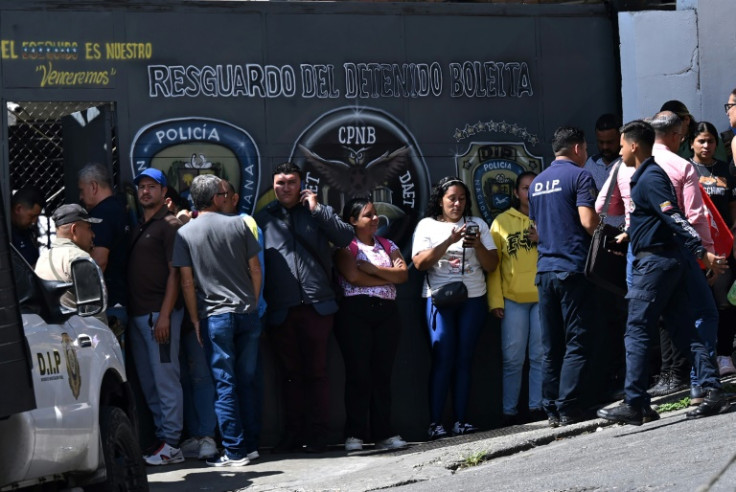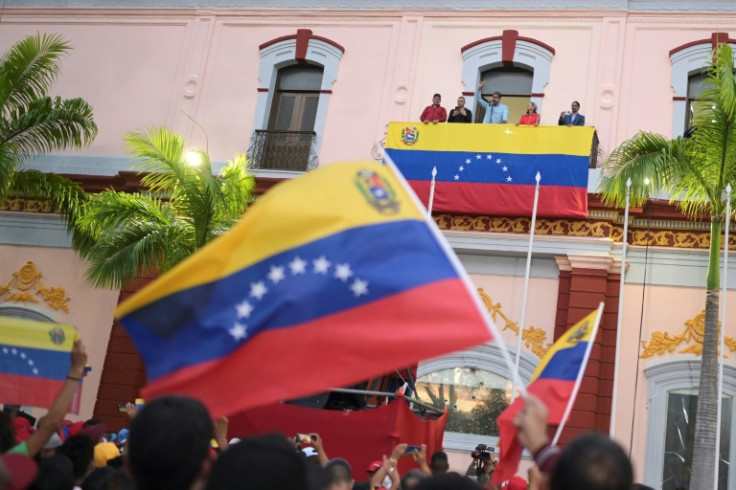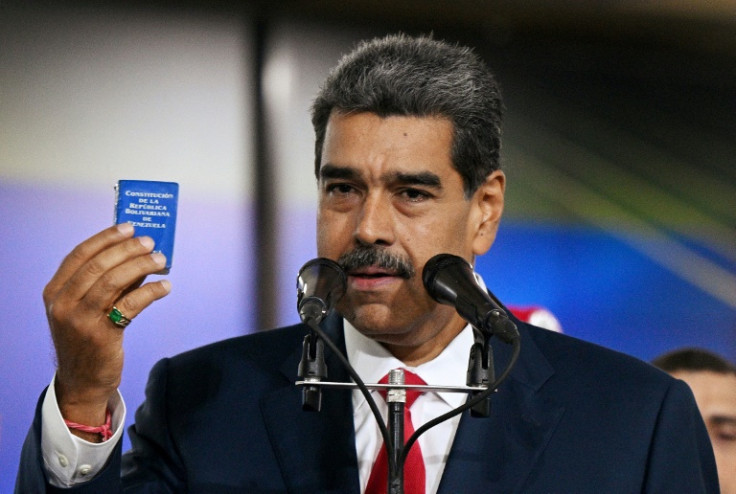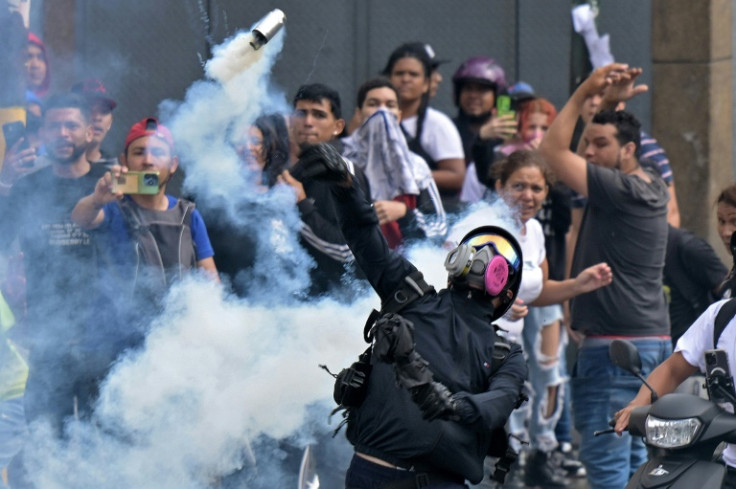
Standing on a balcony of the presidential palace, Venezuelan President Nicolas Maduro bellowed to a crowd of supporters: "Let's get them!"
"Report the fascist criminals to me so I can go find them! I will protect the people street by street, neighborhood by neighborhood!" he roared.
Maduro was referring to those questioning his reelection for a third term in a contested July 28 vote which the opposition has alleged was stolen from them.
The election results, which defied pollsters predictions, sparked protests last week in the oil-rich nation that rights groups say left 24 people dead. The government reported two soldiers had also died.
Maduro said that more than 2,200 people have been arrested for links to the protests, and that opposition leaders Edmundo Gonzalez Urrutia and Maria Corina Machado belonged "behind bars."
Maduro's government set up a phone app and a military phone line for people to make anonymous complaints about opposition protesters, prompting alarm from rights activists.
"Report it!" instructed a state television presenter promoting the initiative. "Have you seen that you can report the fascist... the terrorist?"
The application was later blocked by Google and Apple stores and disabled.
Maduro, however, assured that "more than 5,000 threats" reported through that channel were "attended to."
The General Directorate of Military Counterintelligence (DGCIM) has also set up a telephone line for complaints.
"Operation Tun Tun is just beginning," it warned on social media.
"Tun Tun" refers to the sound of a door being knocked on by authorities.
"We must earn respect in the neighborhood," said Maduro at the Miraflores presidential palace.
At the cells of the national police in Caracas, a woman awaited news of her brother who was arrested after a protest.
"He was with some friends in a bakery" after a march "and the police arrived and took them away," she told AFP, requesting anonymity.
"They are even going to take people out of their homes, to take away their phones to see what they have against the government," she warned. "They went door-to-door, knocking on doors. We are already afraid to make statements, we are afraid of being stopped in the street."
The Foro Penal NGO, which defends "political prisoners," has denounced arbitrary arrests and reported the detention of more than a hundred minors.
"There are cases in which people have been arrested not while they were demonstrating or while they were in the street, but late at night in their homes," Gonzalo Himiob, vice president of Foro Penal, told AFP.
"Apparently these arrests are the result of denunciations... generally in very poor areas," the lawyer said, noting what he called "the establishment of fear as a tool of social control."
General Elio Estrada Paredes, commander of the National Guard -- the military body in charge of public order -- last week praised the "forceful actions" of the armed forces.
"We have managed to reach the homes of these traitors once they have committed acts of vandalism," he said.
Maduro said that he has enabled two maximum-security prisons to transfer all those arrested.
At an opposition protest, a young woman carried a sign calling for "freedom for Jesus Aguilar and all those arrested!"
She prefers not to say anything about the protester arrested in Guarenas, a town near Caracas.
"There is a lot of fear... Many people refuse to report their cases," said Foro Penal's Himiob.
State Department spokesman Matthew Miller said Wednesday that the United States had "great concerns" about attempts by Venezuelan authorities to arrest opposition members and clamp down on protests.
Such actions by Maduro "certainly don't inspire confidence in his proclaimed victory," Miller told reporters.










